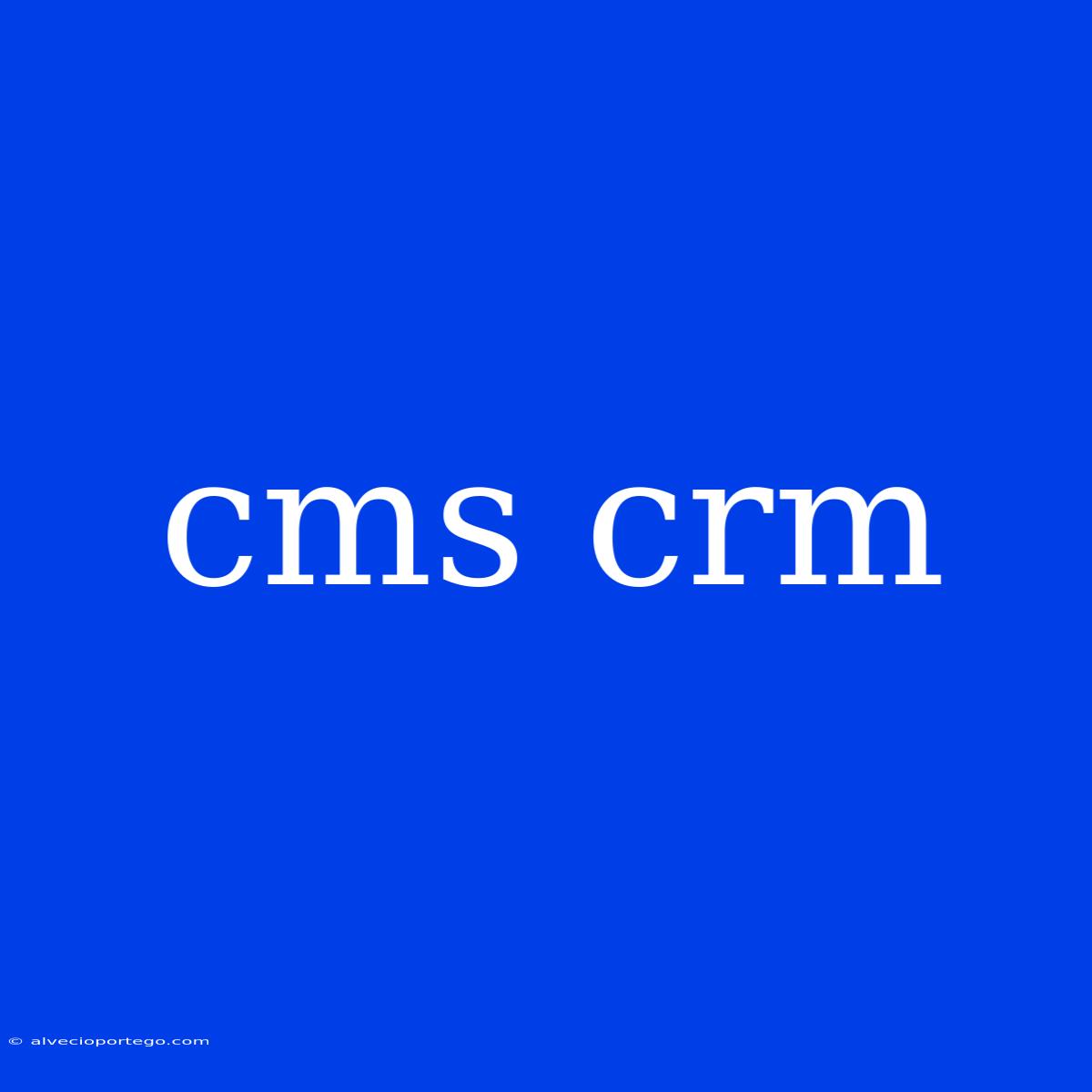CMS and CRM: A Powerful Duo for Business Growth
In today's digital landscape, businesses need powerful tools to manage their online presence, customer interactions, and overall operations. Two such tools, CMS (Content Management System) and CRM (Customer Relationship Management), have become indispensable for organizations of all sizes. While they may seem like separate entities, they can actually work together seamlessly to provide a comprehensive solution for achieving business goals.
What is CMS?
A CMS is a software application designed to simplify the creation, management, and publication of digital content. It allows users to easily update website content without needing technical coding knowledge. Popular CMS platforms include WordPress, Drupal, and Joomla.
Key features of a CMS:
- Content creation and editing: Allows users to create and edit content in various formats like text, images, videos, and documents.
- Content organization: Provides tools for structuring and categorizing content for easy navigation.
- Content publishing and scheduling: Enables users to publish content on a pre-defined schedule or instantly.
- User management: Allows for creating different user roles with varying access levels.
- SEO optimization: Includes features that aid in search engine optimization for better online visibility.
What is CRM?
A CRM is a software system that helps businesses manage customer interactions and data. It provides a centralized platform for storing customer information, tracking interactions, and automating processes to improve customer service and sales efficiency. Popular CRM platforms include Salesforce, HubSpot, and Zoho.
Key features of a CRM:
- Contact management: Allows for storing customer information like contact details, purchase history, and communication records.
- Lead management: Enables tracking of potential customers, their journey, and their interactions with the business.
- Sales automation: Automates sales processes like email marketing, lead nurturing, and opportunity management.
- Customer service support: Provides tools for managing customer support tickets, resolving issues, and providing timely assistance.
- Marketing automation: Offers features for creating and managing targeted marketing campaigns and analyzing their performance.
How CMS and CRM work together
While CMS focuses on managing website content, CRM handles customer interactions and data. However, they can work together to achieve a greater impact by:
- Personalizing website content: CRM data can be used to personalize website content based on user demographics, past interactions, and preferences.
- Targeted marketing: CRM can help segment customers and deliver targeted marketing messages through the website, using content created in the CMS.
- Integrating website forms with CRM: Website forms can be seamlessly integrated with CRM to capture customer information and track leads.
- Improved customer service: CRM data can provide website visitors with relevant content, FAQ sections, and contact information tailored to their needs.
Benefits of integrating CMS and CRM
- Enhanced customer experience: A combined system provides a more personalized and engaging experience for customers.
- Increased sales conversion: Targeted marketing and website personalization lead to higher conversion rates.
- Improved operational efficiency: Automation of processes and central data storage reduce manual effort and increase efficiency.
- Better decision making: Data-driven insights from both systems enable better business decisions.
Choosing the right CMS and CRM
Selecting the right combination of CMS and CRM platforms depends on specific business needs, size, and budget.
- Small businesses: May benefit from using cloud-based platforms with easy-to-use interfaces and affordable pricing.
- Large enterprises: Might require customized solutions with advanced features and integration capabilities.
Ultimately, choosing the right CMS and CRM integration can be a game-changer for any business. It unlocks the power of digital tools to enhance customer interactions, optimize marketing efforts, and drive sustainable growth.

